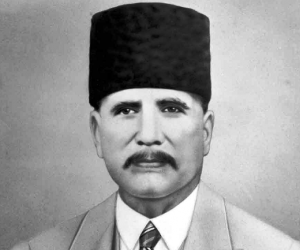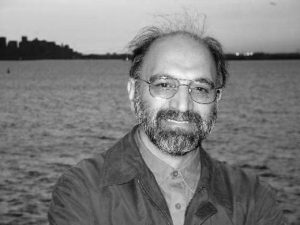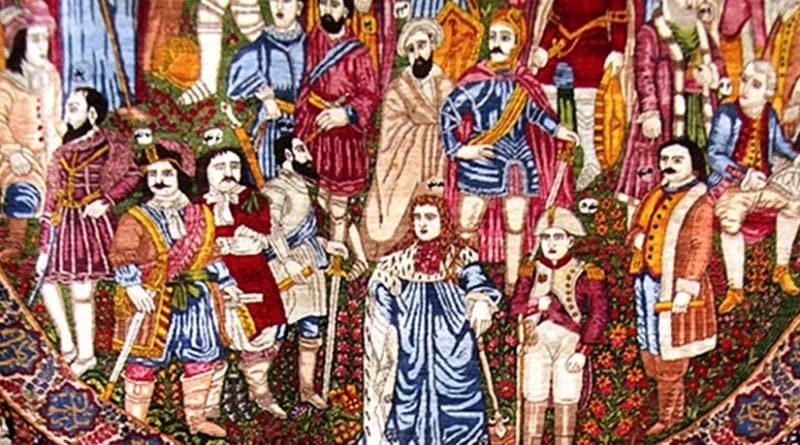Modernizing Islam: Iran’s Reformists And Reconstructionists Square Off – Analysis
Iran’s Reformists and Reconstructionists Square off on the question of Modernizing Islam
By Mahmoud Sadri*
About a year ago, a group of diaspora Muslim intellectuals were sitting around a blazing fire by a muddy river in Broken Bow, Oklahoma, debating strategies of modernizing traditional Islam.
The worldwide Islamic reform movement, undaunted by the lurid cruelty of Islamic extremism, forges ahead. Its anxious debates may sound Byzantine to Western ears, but since they may very well presage the arrival of Islam’s own brand of reformation, they deserve a hearing.
What is the debate about?
Reformation in Islam was a response to the challenge of “modernity” (as was fundamentalism.) The definition of modernity to me, a sociologist, boils down to one word: “Differentiation,” (of institutions like religion and state, and of spheres of life like public and private.) This is inevitable for every society as it becomes more complex. It’s also a good thing because it makes liberty and prosperity more accessible to everyone. It comes, however, with a price.
Modernization is a painful transition for every traditional society. It divides political power, angering the powerful, and increases specialized knowledge, confusing the believers. And yet, it is doubly hard for the non-Western and particularly Islamic societies. Why? Because they must accommodate modernization while resisting Westernization. Unlike in the West, where modernity was a local groundswell, it came to non-Westerners as suspicious cargo: a cluster of unknown ways, brought by distrusted visitors.

This challenge split the Islamic response to modernity into two: “Revivalists” saw modernization as inseparable from the Westernization, renounced it, and resorted to a crude reconstruction of the old religion to rival modernity. “Reformists”, on the other hand, sought to accommodate the modern while resisting the Western. The two Muslim camps faced off in the 19th century on the fringes of the Ottoman and Russian Empires, in places like Bosnia Herzegovina and Trans Caucasia. Their successors continued the debate in the twentieth century in the Colonial India and pre-revolutionary Iran.
By the 20th century, however, Revivalism (exemplified in Egypt’s anti-traditional Salafi school of thought) had collapsed and what was left of it was swallowed whole by Wahhabism (from nomadic Arabian Peninsula). It was and still is the deadly enemy of modernity. Reformism, too, had changed. It had sprouted a new branch, Reconstructionism, which sought to re-imagine Islam, as a whole, in light of the modern science, ethics and politics, and aesthetics. Now the step-by-step Reformists had to mollify the vaulting ambitions of Reconstructionists within their ranks.
Nowhere was the debate between Islamic Reformism and Reconstructionism (both modernist projects) better illustrated than in pre-independence India. There, the Reformist politician Abul Kalam Azad, a Gandhi loyalist, faced Mohammad Iqbal, an astute philosopher and lyricist who had coined the term “Reconstruction” of Islamic thought.
Azad believed traditional Muslims and Hindus only needed a modicum of literacy and civic tolerance in order to live and prosper together in the modern independent India. Mohammad Iqbal, on the other hand, despised both Islamic and Hindu superstitious parochialism.
In a historic letter to his colleague, Jinnah, (the founder of modern Pakistan) he counseled partition and formation of a new state based on his idea of a modern progressive Islam. The subcontinent split into two and later, three countries. The bloody legacy of partition and the history of India and Pakistan, however, corroborated Azad’s modest reformist views.
Iqbal’s ambitious Republic of Virtue, the world’s first Islamic Republic, soon succumbed to authoritarianism and radicalism, while Azad’s reformist vision of tolerance and pluralism in India contributed to the creation of the world’s largest democracy. This was a bitter and bloody divorce but was not inevitable. Reformists and Reconstructionists could have collaborated. They still can.
Enter Iran
The same rivalry played out in the second half of the 20th century in Iran, pitting the tireless Reformist Mehdi Bazargan against the ebullient Reconstructionist Ali Shariati. The former looked for a practical path toward liberty and prosperity through party politics and (when that failed) peaceful protest. The latter, oblivious to short term solutions, envisioned another Islam, compatible with soaring humanist and progressive ideals.

These meandering currents emptied into the torrent of the Islamic Revolution of 1979 which unceremoniously metabolized their democratic and progressive energies and forged its own unique hybrid blend: a dual (half democratic, half theocratic) republic; a political oxymoron known as the Islamic Republic of Iran.
Iranian Reformists regrouped 15 years after the revolution, first with the slogan of rebuilding and prosperity under President Hashemi Rafsanjani, and then under the banner of civic liberty under President Mohammad Khatami. The movement suffered an eight-year setback under Ahmadinejad’s neo-fundamentalist demagoguery but, having learned its lessons, returned with the slogan of “Prudence and Hope” under President Rouhani.
Present and Presently…
Now, once more, the Reform and Reconstruction camps of Islamic modernism are debating each other. Among the people present around the Broken Bow campfire was Abdulkarim Soroush, (who has been called the “Luther of Islam”). Soroush’s bold Reconstructionist views (he makes no secret of his admiration for Mohammad Iqbal) have caused a tempest in the crucible of Reform-Reconstruction debates. The proponents of Reform fear a repetition of a variant of the Indian scenario in the Iranian theater. Reformism is moderate, pragmatist, and realist; Reconstructionism is ambitious, idealist, even “Emanationist” (expecting realities to “emanate” from ideas, like Athena, springing forth, fully armed, from Zeus’s forehead.)
Soroush’s increasingly radical departures from received religious wisdom include his recent views on God (as impersonal and – for all intents and purposes — absent), Qur’anic revelation (as dream sequences), and Islamic jurisprudence (as antiquated and all but irrelevant).
Reformers are worried about the compatibility of these ideas with the reform program in Iran and across the Islamic world. They believe radical pronouncements such as these are not only incompatible with the theology and history of the religion but that they may alienate the masses and push them toward the fundamentalists.
Soroush and his other Reconstructionist colleagues (Mohammed Arkoun in France, Nasr Abu Zayd in Egypt, Mohammad Mojtahed Shabestari in Iran, and others) risk alienating their reform-minded colleagues who increasingly despair of translating their radical reconstructions for a more traditional Muslim audience.
For their part, Soroush and his colleagues have argued that their only “responsibility” is to the “truth.” Their reform-minded colleagues argue that, resigning from the role of “engaged intellectuals” (as defined in Europe by Emile Zola and Jean Paul Sartre) they risk irrelevance and obscurity at this sensitive juncture in the history of Iranian and Islamic reformation. The relentless demystification of religious precepts at the hands of Reconstructionists may very well alienate the community of believers and deliver them into the hands of the extremists in traditionalist clothing.
Land ahoy
Soren Kierkegaard, the 19th century Danish philosopher, once proposed that religious believers are like passengers in ships that have been launched a long time before they were born. The Reform movement contends that the necessary changes and repairs can only be implemented from within the ship. Reconstructionists must work with the reformers and, above all, must be careful not to drill holes in the ship’s hull. The (inner worldly) salvation may be closer than the Reconstructionists imagine.
*Mahmoud Sadri is a professor of sociology and affiliated professor of Women’s Studies at Texas Woman’s University and the Federation of North Texas Area Universities.
Author’s Note: Two months ago I published two articles in the Persian page of Radio Zamaneh entitled: “the Discourse of Religious reform and reconstruction” and “Evolution and Ripening of the Idea of Religious Reform”. Subsequently, I participated in a round table discussion at the BBC’s “Pargar” program, the first installment of which was aired on December 29, 2016 under the title of “Reform or Beyond?”. Given the fact that all of the above were written and spoken in vernacular Persian, I thought an English synopsis may be of interest.

